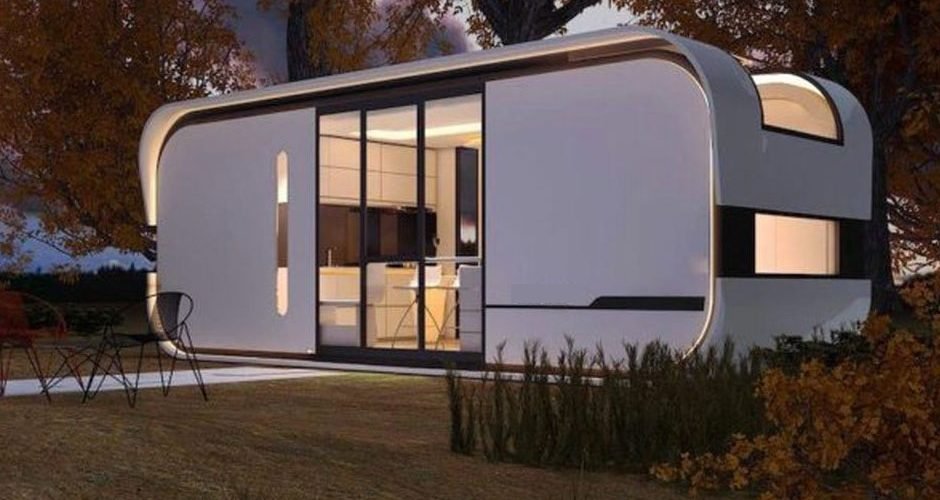Living in a home has become a choice due to its simplicity, affordability, and the opportunity for a clutter-free existence. However, maintaining an environment in limited spaces can be quite challenging for even the most detail-oriented individuals. Thankfully, recent advancements in intelligence (AI) have presented solutions to enhance efficiency and organization within tiny homes. In this article, we will explore how incorporating AI technology can maximize home organization and functionality.
Table of Contents
1. Optimal Space Utilization: Assisted Furniture Arrangement with AI
Effectively utilizing space while ensuring comfort and functionality is one of the obstacles faced by tiny homeowners. Thanks to cutting-edge and top artificial intelligence tools, optimizing design layouts based on space dimensions and personal preferences is now possible.
By leveraging AI-powered software that analyzes your home’s dimensions, occupants can effortlessly receive suggestions for furniture arrangements that strike a balance between aesthetics and practicality.
2. Streamlined Schedules through Intelligent Systems
Living in a fast-paced world where time management is crucial for balancing personal and professional lives, it becomes essential to maintain an organized schedule, especially in small living spaces.
With the integration of AI-powered systems controlling lighting, temperature, and appliances in your home, you can create schedules tailored precisely to your daily routine. AI-driven lighting automation systems can adjust to your preference for light at times of the day or dim the lights for cozy movie nights without constant manual intervention.
Furthermore, incorporating thermostats into your appliances provides control over energy consumption while ensuring energy-efficient environments that adapt to changing weather conditions throughout the year.
3. Simplified by Voice: Virtual Assistants Lighten Your Load
Virtual assistants like Siri or Google Assistant have gained popularity through their integration with smartphones and have immense potential beyond these devices. Advancing technologies now allow integration with Internet of Things (IoT) devices commonly found in small homes, significantly enhancing convenience.
By introducing a voice-activated assistant into your home, tasks such as adjusting lighting levels, playing your music playlist, or managing grocery lists can be effortlessly accomplished through vocal commands. As these technologies continue to advance and broaden their capabilities, you can expect to delegate everyday tasks to AI-powered virtual assistants.
4. Smarter Storage: AI Enhanced Solutions for Organization
Efficient organization is crucial when it comes to managing a home. Thanks to artificial intelligence (AI), we now have storage solutions that revolutionize the way we organize and search for our belongings.
AI-powered systems use algorithms to analyze and categorize items based on the preferences of homeowners. This helps minimize clutter and keep living spaces neat. By combining image recognition algorithms with motion sensors, these systems can even detect when specific objects are taken out, updating the inventory accordingly.
Additionally, smart storage applications like wardrobes offer an approach to managing clothing. By capturing images of each garment and automatically logging them onto apps or devices, they provide suggestions for arrangements for different occasions, making daily decisions about what to wear much simpler.
5. Efficient Energy Consumption: AI-Driven Sustainability
Living in a tiny home often involves adopting an eco-friendly lifestyle with a smaller carbon footprint. AI technology can play a significant role in optimizing energy consumption, thus promoting sustainability within these compact living spaces.
By implementing smart energy systems that adapt to occupants’ behavior, AI algorithms analyze usage patterns and make intelligent adjustments to minimize energy wastage. Integrated sensors automatically adjust lighting levels based on natural light availability, reducing unnecessary power consumption during daylight hours. Temperature control systems optimize heating and cooling cycles to ensure comfortable living while minimizing energy usage.
Conclusion
Living in a home poses challenges when it comes to staying organized. Fortunately, AI technology has given us groundbreaking opportunities to tackle these challenges and achieve organization effortlessly.
From optimizing furniture arrangements using algorithms to incorporating voice-activated assistants that streamline daily tasks and routines, AI is transforming how we interact with our living spaces. Embrace the benefits of AI-powered storage solutions and witness how they transform the way we declutter and maximize our space. These innovative systems offer a level of organization that goes beyond methods, making life easier for homeowners with limited space.





